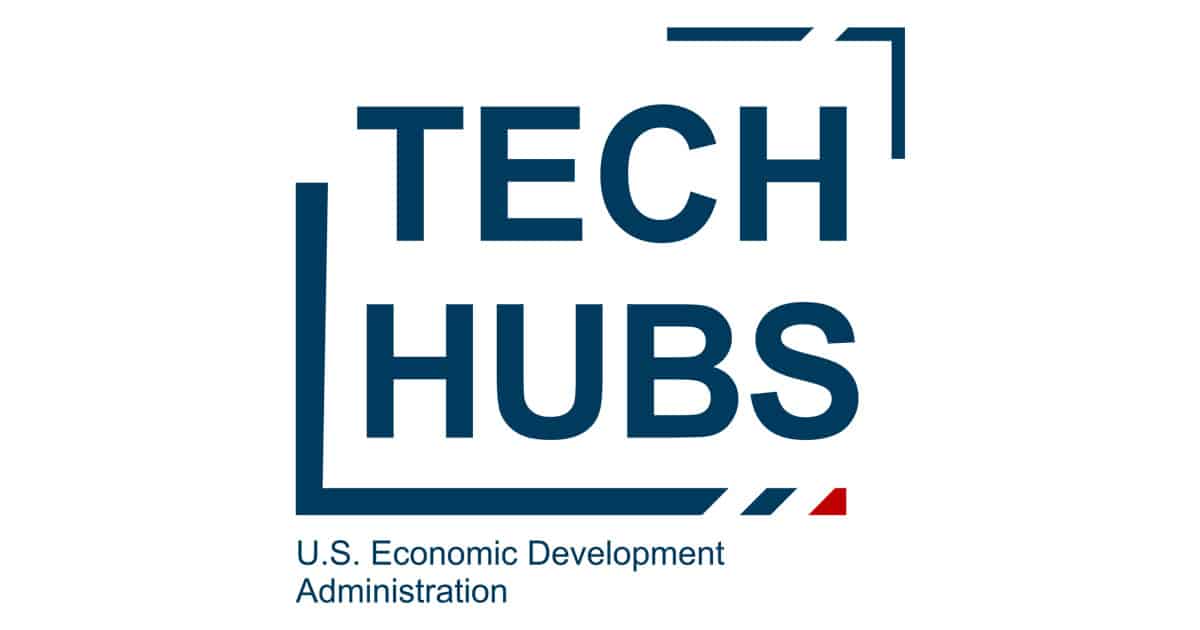

Greater Phoenix Awarded EDA Tech Hub Strategy Development Grant
Published: 10/23/2023
Updated: 08/27/2024
The grant will accelerate a regional strategy for smart medical device manufacturing
PHOENIX (Oct. 23, 2023) – The Greater Phoenix Economic Council (GPEC), as part of a consortium of 25 public, private and academic partners focused on increasing medical device manufacturing in the region and increasing the sector’s domestic competitiveness, has been awarded a federal grant to further its strategic work.
As part of the U.S. Department of Commerce’s Economic Development Administration (EDA) Tech Hubs program, the Medical Device Manufacturing Multiplier Strategy Development Consortium (MDM2) has received a planning grant which will support the group’s public-private collaboration and investment model designed to further position Greater Phoenix within the rapidly evolving healthcare innovation economy. MDM2 was one of 29 Strategic Development Grant (SDG) recipients across the U.S. and the only group in Arizona to receive an award during this first phase of the program.
The MDM2 consortium is made up of organizations spanning higher education, industry, workforce training, venture development, philanthropy and government, supported by U.S. Sens. Mark Kelly and Kyrsten Sinema. The SDG funding, part of which will be matched by Flinn Foundation, Virginia G. Piper Charitable Trust and Vitalyst Health Foundation, will enable MDM2 to accelerate equitable regional economic growth in the manufacturing of medical devices driven by emerging technologies such artificial intelligence and machine learning. This has the potential to transform healthcare access and equity while generating wide-ranging impacts on the national and economic security of the country.
“The work of the MDM2 consortium will accelerate the region’s impact within the international bioscience industry while strengthening domestic manufacturing capacity and processes,” said GPEC President and CEO Chris Camacho. “With this comes more opportunities to train a skilled workforce and increase access to high-quality care which creates a healthier, more equitable future for our communities.”
“This award will strengthen Arizona’s leadership in cutting edge bioscience innovation, creating more opportunities for investment and good-paying jobs,” said Sen. Kelly. “The Regional Technology Hub program is designed to identify high-growth regions for critical industries, like Phoenix, so that we outcompete China and other adversaries in critical technology. I’ll continue to work closely with Secretary Raimondo, Assistant Secretary Castillo, and leaders in Phoenix to ensure this is a success for our state and the country.”
“Thanks to our leadership, Phoenix will receive critical federal funding to boost manufacturing, medical research, and development, creating jobs, growing Arizona’s economy, and ensuring our state remains a great state to grow a business and call home for generations to come,” said Sen. Sinema.
Tech Hubs, authorized by the bipartisan CHIPS and Science Act, is an economic development initiative designed to drive regional innovation and job creation by strengthening a region’s capacity to manufacture, commercialize, and deploy technology that will advance American competitiveness.
“President Biden’s Investing in America agenda is rooted in policies that will empower the United States to out-innovate and out-compete the rest of the world. Our Tech Hubs Program is fundamental to that mission and will supercharge innovation across the nation by spurring cutting-edge technological investments and creating 21st century job opportunities in people’s backyards,” said U.S. Secretary of Commerce Gina Raimondo. “Each of these consortia will help us ensure the industries of the future—and their good-paying jobs—start, grow, and remain in the United States.”
About the Greater Phoenix Economic Council
The Greater Phoenix Economic Council (GPEC), globally recognized as a top economic development organization (EDO), works to attract and grow quality businesses and advocate for the competitiveness of Greater Phoenix. A data-driven regional EDO, GPEC works with 22 member communities, Maricopa County and more than 200 private investors to accomplish its mission and serve as a strategic partner to companies across the world as they expand or relocate to Greater Phoenix. Over the past 34 years, GPEC has fueled the regional economy by helping over 980 companies, creating nearly 182,000 jobs and more than $65 billion in capital investment. Greater Phoenix is in a relentless pursuit of innovative and entrepreneurial-focused companies looking to thrive and scale in a vibrant, dynamic region. There is an undeniable spirit in the region; one rooted in strength, collaboration and resilience. Greater Phoenix is Greater Together. For more information about GPEC and how we can assist your businesses, visit www.gpec.org.
About the Medical Device Manufacturing Multiplier Strategy Development Consortium
The Medical Device Manufacturing Multiplier Strategy Development Consortium (MDM2) aims to accelerate equitable regional economic growth by leveraging existing assets for the manufacturing of smart and digital medical devices driven by emerging technologies, such as AI and machine learning. The consortium seeks to transform healthcare access and equity and enhance national economic security and competitiveness by increasing the U.S. capacity for advanced manufacturing and building more resilient supply chains. MDM2 addresses vulnerabilities highlighted by the COVID-19 pandemic, fostering a collaborative public-private model to develop a skilled workforce and position Phoenix as a global leader in medical device manufacturing.
The consortium includes 25 members across various industry sectors, including Higher Education (Arizona State University, Grand Canyon University, Northern Arizona University, Phoenix Bioscience Core, University of Arizona – Phoenix); Government (City of Chandler, City of Phoenix, Maricopa County); Industry (Arizona Bioindustry Association Inc., Barrow Neurological Institute, BD Peripheral Intervention, HonorHealth, Intel Corporation, Medtronic, W.L. Gore & Associates); Economic Development (Greater Phoenix Economic Council, Partnership for Economic Innovation); Workforce Training (Maricopa Community Colleges); Venture Development (IdealabX, Opportunity Through Entrepreneurship Foundation, Yoo and Company Accelerators); Community Development (Local Initiatives Support Corporation – Phoenix, Healthy Communities) and Philanthropy (Flinn Foundation, Virginia G. Piper Charitable Trust, Vitalyst Health Foundation). The consortium is also supported by Sens. Mark Kelly and Kyrsten Sinema.